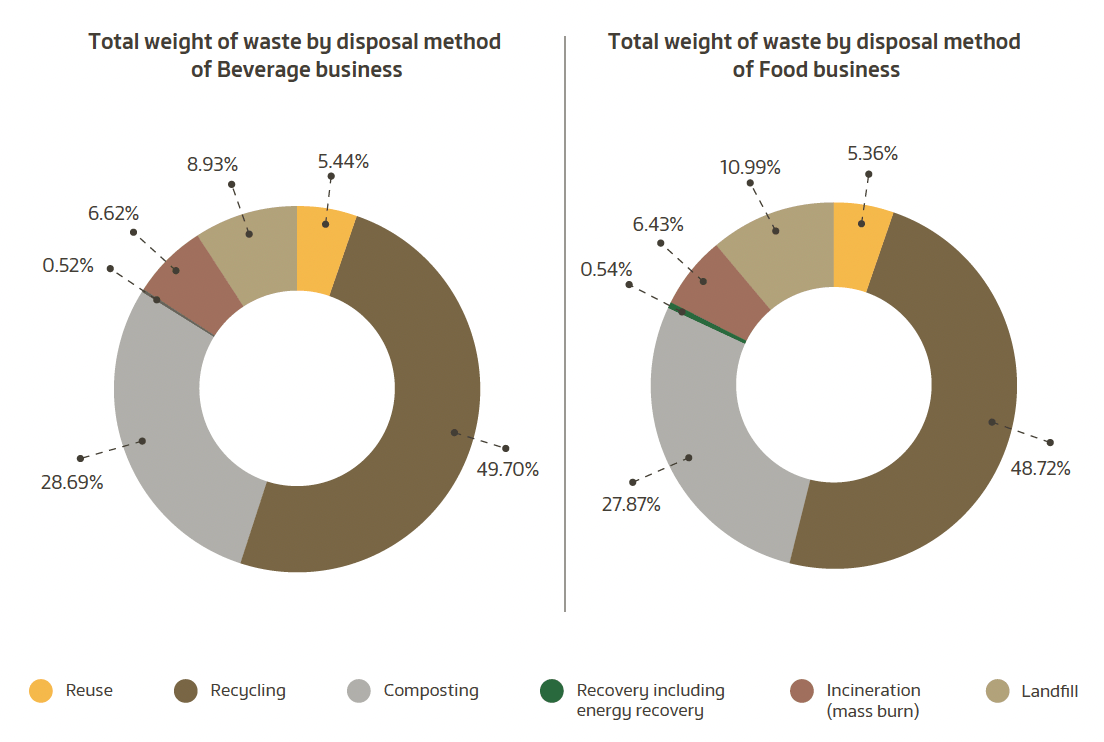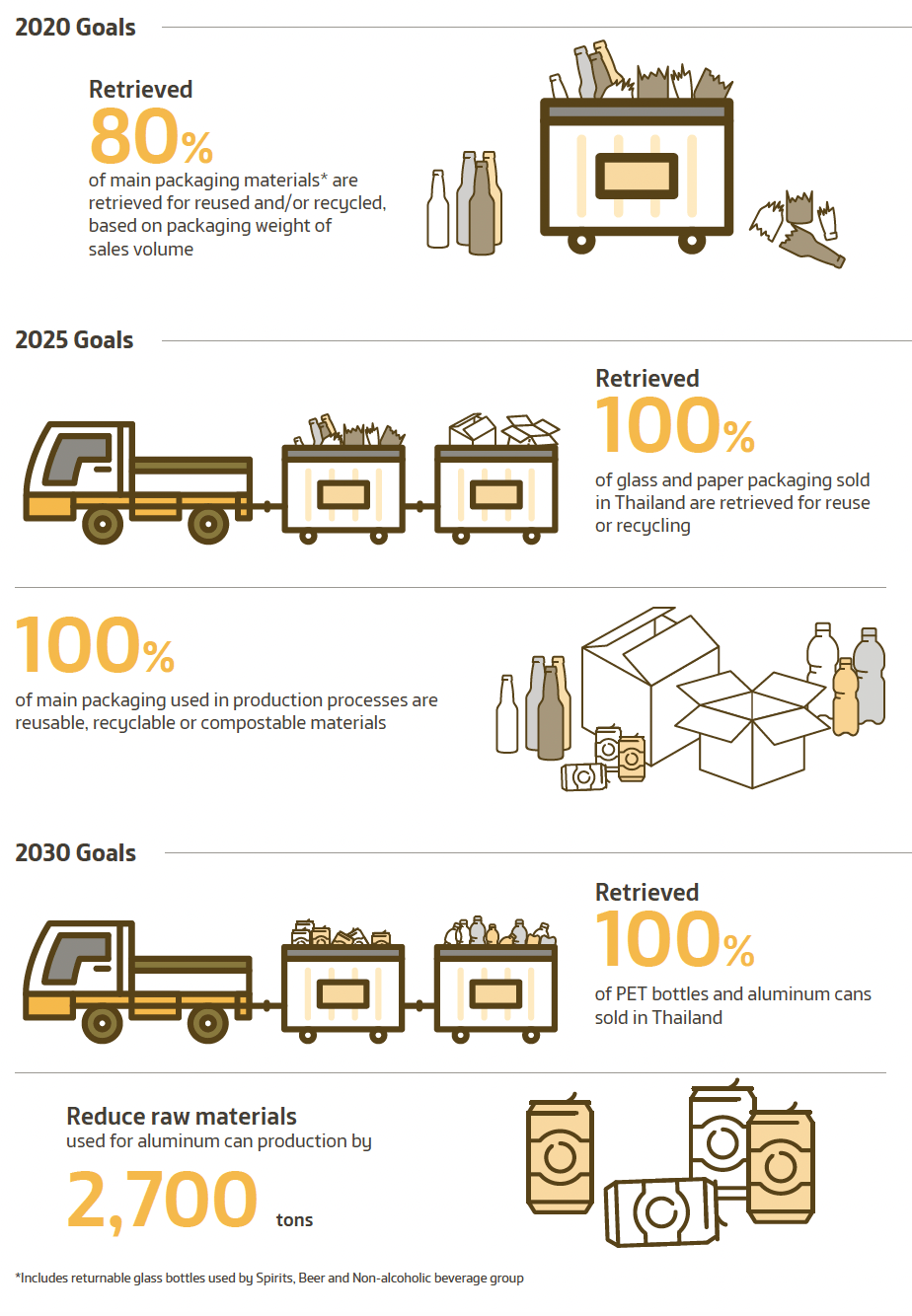| SUSTAINABILITY |
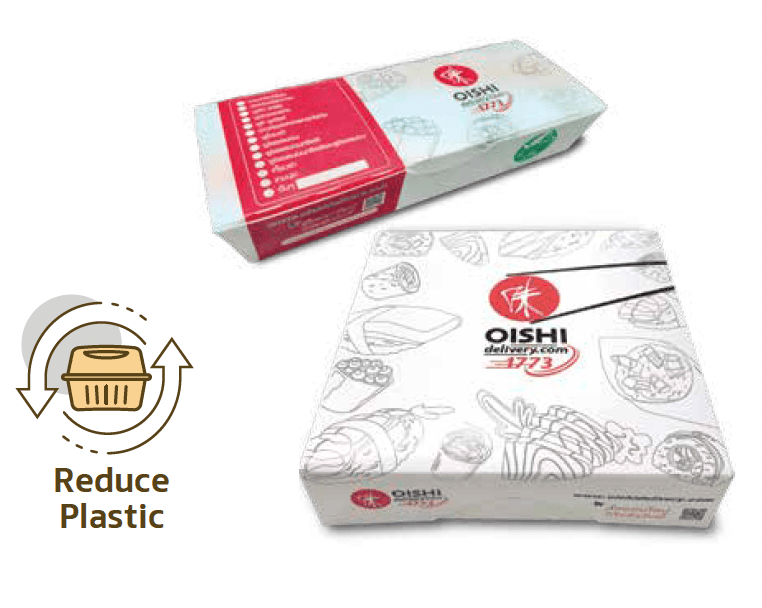
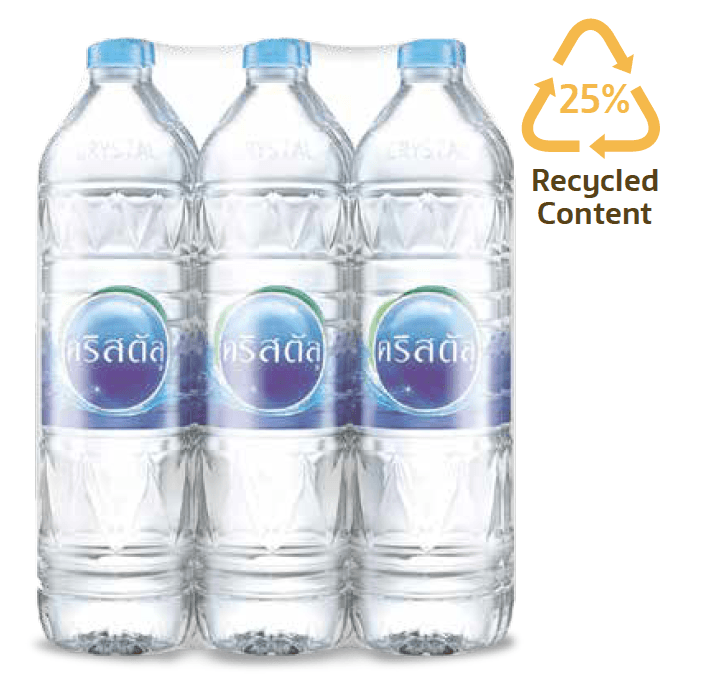
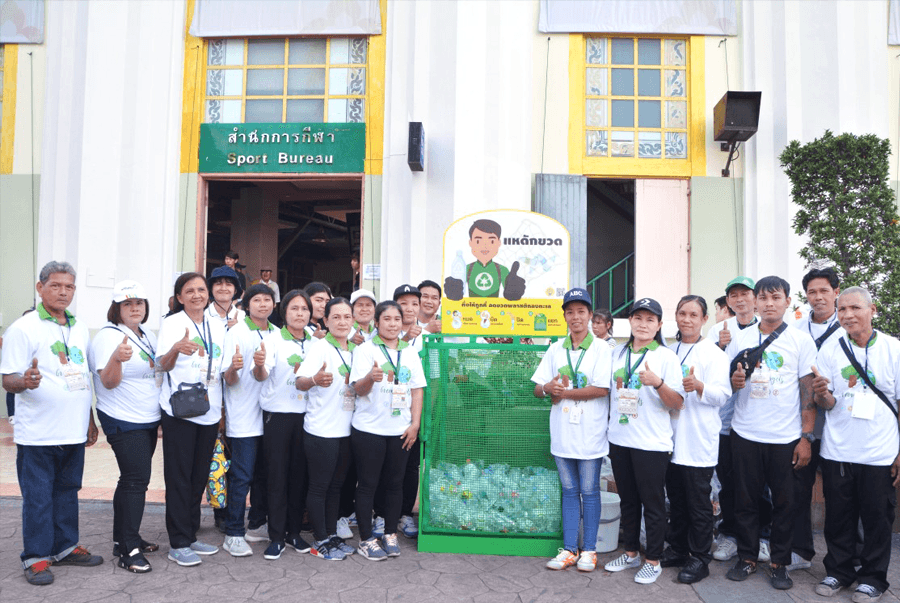 TBR aims to promote post-consumption packaging management through engagement activities and encourage end users to participate in waste sorting so that recyclable packaging can be properly managed. TBR set out to find a sustainable solution and established the “Bring Back-Recycle” campaign encouraging ThaiBev employees to sort their trash. Under this campaign, recyclable packaging waste such as glass bottles, aluminum cans, and PET bottles are sold, and the earnings are donated to ThaiBev’s employees’ fund. Employees can follow up on the latest updates on the donations via "OK Recycle" application. The application systematically records recycling activities and relevant information. TBR also work closely with the Thailand Institute of Packaging and Recycling Management for Sustainable Environment (TIPMSE) and encourage the use of this application in activities which are organized by governmental agencies.
TBR aims to promote post-consumption packaging management through engagement activities and encourage end users to participate in waste sorting so that recyclable packaging can be properly managed. TBR set out to find a sustainable solution and established the “Bring Back-Recycle” campaign encouraging ThaiBev employees to sort their trash. Under this campaign, recyclable packaging waste such as glass bottles, aluminum cans, and PET bottles are sold, and the earnings are donated to ThaiBev’s employees’ fund. Employees can follow up on the latest updates on the donations via "OK Recycle" application. The application systematically records recycling activities and relevant information. TBR also work closely with the Thailand Institute of Packaging and Recycling Management for Sustainable Environment (TIPMSE) and encourage the use of this application in activities which are organized by governmental agencies.  The project is a collaborative effort between ThaiBev and its agents, or distributors, to collect used glass bottles of beer and spirits. In this new take back model, the agents collect packaging from retail stores. These post-consumption packaging will then be retrieved back to TBR factories via backhauling. The project had been successfully initiated with one of ThaiBev’s agents in Nakhon Ratchasima province, Thailand, with plan in place to extend this model to other distributors throughout the country.
The project is a collaborative effort between ThaiBev and its agents, or distributors, to collect used glass bottles of beer and spirits. In this new take back model, the agents collect packaging from retail stores. These post-consumption packaging will then be retrieved back to TBR factories via backhauling. The project had been successfully initiated with one of ThaiBev’s agents in Nakhon Ratchasima province, Thailand, with plan in place to extend this model to other distributors throughout the country. 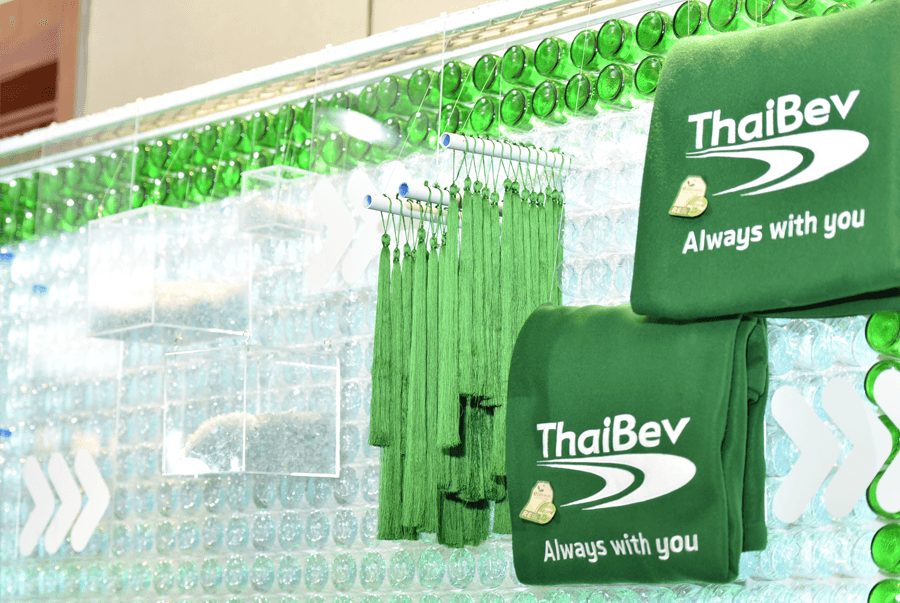 PET bottles can be upcycled to produce rPET (recycled PET) fiber, a value-added recycling method. In 2020, over 7.6 million PET bottles were retrieved by TBR and sent to an rPET fiber manufacturer to make, for the first time, 200,000 rPET blankets to be donated under the campaign “ThaiBev… Unites to Fight the Cold”. The production of rPET fiber uses 94% less water and 60% less energy than the typical production of polyester fiber. This results in a 32% reduction of GHG emissions or 7 tCO2e compared to the traditional production of 200,000 blankets.
PET bottles can be upcycled to produce rPET (recycled PET) fiber, a value-added recycling method. In 2020, over 7.6 million PET bottles were retrieved by TBR and sent to an rPET fiber manufacturer to make, for the first time, 200,000 rPET blankets to be donated under the campaign “ThaiBev… Unites to Fight the Cold”. The production of rPET fiber uses 94% less water and 60% less energy than the typical production of polyester fiber. This results in a 32% reduction of GHG emissions or 7 tCO2e compared to the traditional production of 200,000 blankets. 
